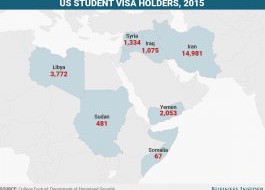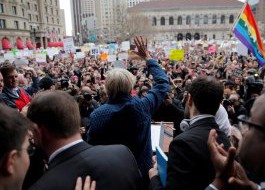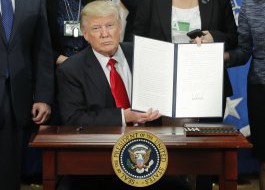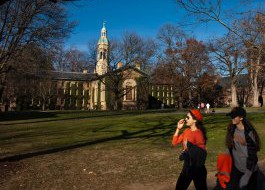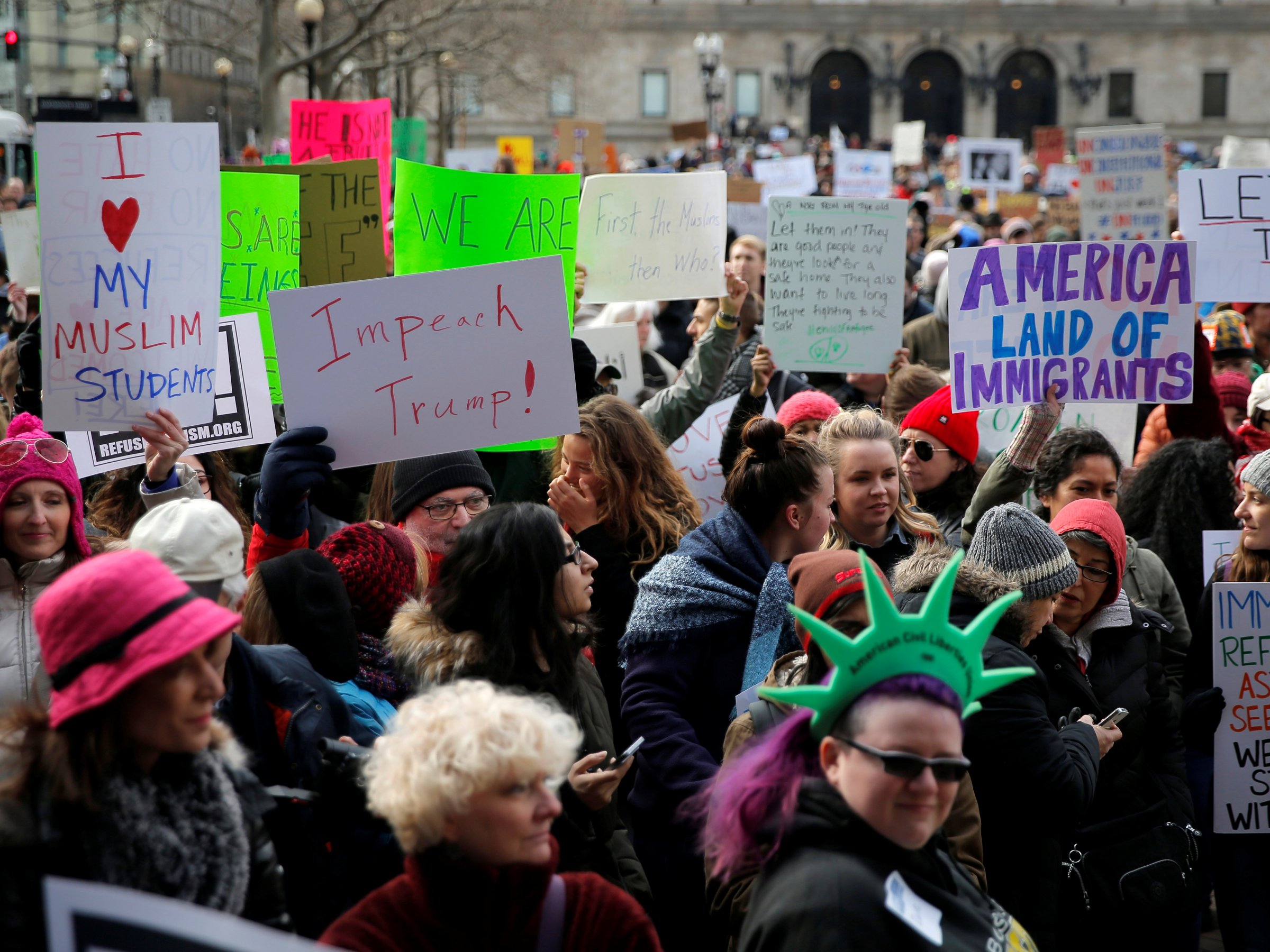
Many higher education leaders issued statements over the weekend in response to the Trump administration's executive order to ban immigrants and non-immigrant visitors from seven countries, which are majority Muslim, from entering the United States.
They criticized the ban for the disruption it caused to students and scholars and for confusion around the order and its implementation and, in many cases, expressed moral outrage.
The speed and volume of the response by the large number of colleges and academic groups -- some without a tradition of quickly weighing in on political developments -- was highly unusual.
The following is a sampling of the statements. (Others are quoted in this article.) Most are excerpts. Links to full statements have been included where available.
Alisse Waterston, president of the American Anthropological Association
“The order must be rescinded, immediately, and the hateful cultural ignorance behind it must be named …
“To our friends and colleagues around the world, we feel compelled to emphasize this new administration’s actions do not reflect the views of a majority or even a plurality of the American people. This government cannot hide behind the spectacle and highly charged xenophobic rhetoric of nationalism any longer. Its policies and practices must be based on knowledge gained from systematic observation. To do otherwise places human rights and the rule of law in peril. We are watching closely, and hold this new administration accountable for remaining within the guide rails of truth and justice.”
Muriel Howard, president of the American Association of State Colleges and Universities
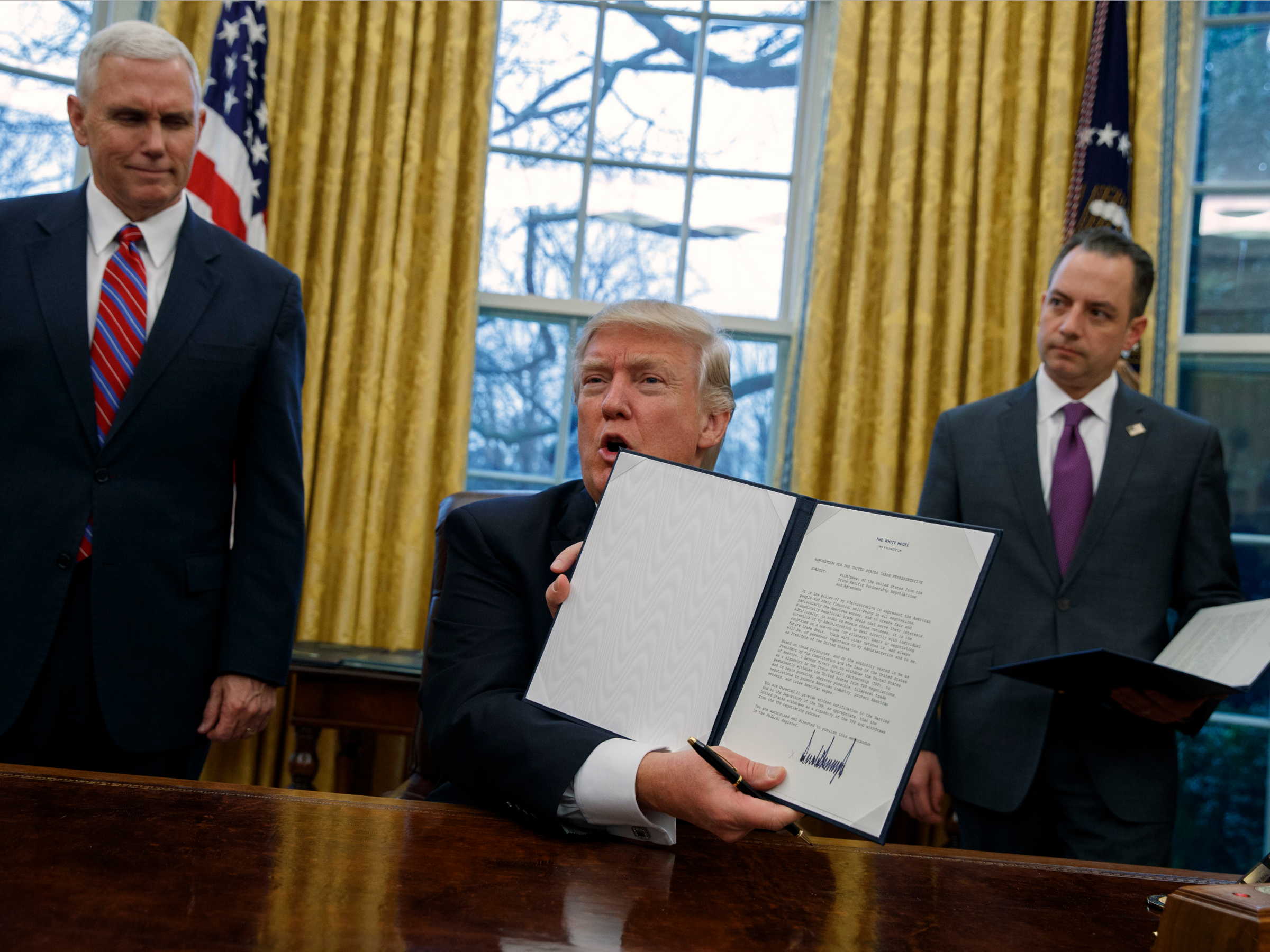 Evan Vucci/AP
Evan Vucci/AP
"The United States has long benefited from scientific, cultural and economic contributions of international students and scholars. America's state colleges and universities have been strengthened by the presence of students and faculty from around the globe, including those from the seven countries specifically targeted by the president's executive order. We share in the collective commitment to protect our national security while at the same time enriching our nation with invaluable contributions from abroad. Accordingly, we respectfully urge the administration to reconsider its recent action."
Mary Sue Coleman, president of the Association of American Universities
"We recognize the importance of a strong visa process to our nation’s security. However, the administration’s new order barring the entry or return of individuals from certain countries is already causing damage and should end as quickly as possible. The order is stranding students who have been approved to study here and are trying to get back to campus, and threatens to disrupt the education and research of many others.
"We also urge the administration, as soon as possible, to make clear to the world that the United States continues to welcome the most talented individuals from all countries to study, teach and carry out research and scholarship at our universities. It is vital to our economy and the national interest that we continue to attract the best students, scientists, engineers and scholars. That is why we have worked closely with previous administrations, especially in the wake of 9/11, to ensure our visa system prevents entry by those who wish to harm us, while maintaining the inflow of talent that has contributed so much to our nation."
Association of Catholic Colleges and Universities
"As the voice of Catholic higher education, the Association of Catholic Colleges and Universities expresses its strong opposition to the executive order signed by President Donald J. Trump concerning U.S. immigration policy. We stand in solidarity with other Catholic and higher education organizations that recognize the moral obligation of our country to assist migrants, particularly those who are fleeing any kind of persecution."
Leon Botstein, president of Bard College
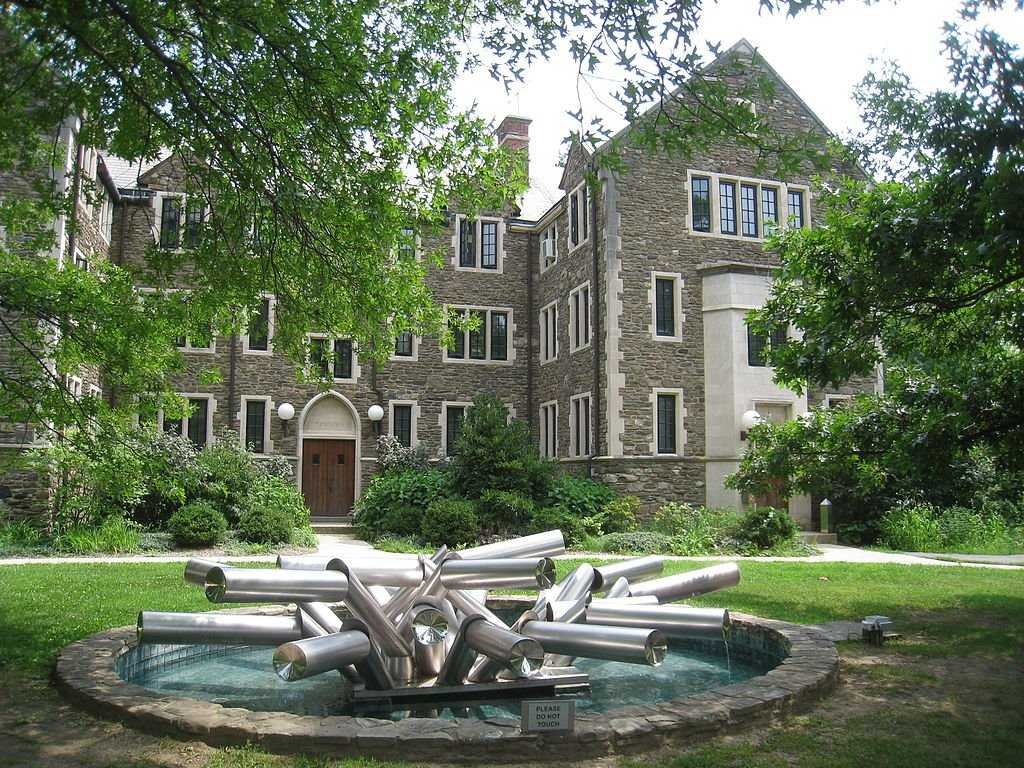 Bard College. Wikimedia Commons / Daderot
Bard College. Wikimedia Commons / Daderot
"I am an immigrant, a naturalized citizen whose family came stateless to this country. My deep patriotism for America is rooted in that experience. That patriotism is attached to the laws and ideals of the United States.
"Our country was not always hospitable to refugees and immigrants. It was essentially closed from the 1920s until the mid 1960s. It turned away refugees from Nazi Europe. We cannot now permit our country to return to the America First isolationism of the 1930s and redefine itself as place of xenophobia, intolerance, and discrimination."
Faculty members from Brown University
"With one quick signature, President Trump’s recent executive order on immigration overturned decades of legal, moral and historical precedent. The stay of this order by a district court in Brooklyn is temporary, and the future of it is uncertain.
"As faculty, we keenly understand the need for international connections. We value our colleagues overseas, we appreciate the global diversity of our local community and we recognize the scholarly significance of intellectual exchange across borders. Knowledge and understanding, we know, don’t belong to any one country. For these reasons, we are greatly dismayed by the shortsighted backwardness of this most recent executive order."
Hunter R. Rawlings III, president of Cornell University
"President Donald Trump’s recent executive order imposing a 90-day ban on immigrant and nonimmigrant entry to the United States from seven predominantly Muslim nations is deeply troubling and has serious and chilling implications for a number of our students and scholars. It is fundamentally antithetical to Cornell University’s principles."
John J. Sygielski, president of Harrisburg Area Community College
"Over the past few days, there have been executive orders issued that suspend admissions into the United States of refugees, immigrants and citizens of seven majority-Muslim nations. The uncertainty of what will come of these executive actions has the potential to create an environment of hostility, negativity and fear.
"Whether you were born in the United States or you are one of HACC’s nearly 300 international students who represent more than 60 countries, the central mission of the college -- to create opportunities and transform lives to shape the future together -- applies to each of you equally. You are right where you belong -- at HACC."
Drew G. Faust, president of Harvard University
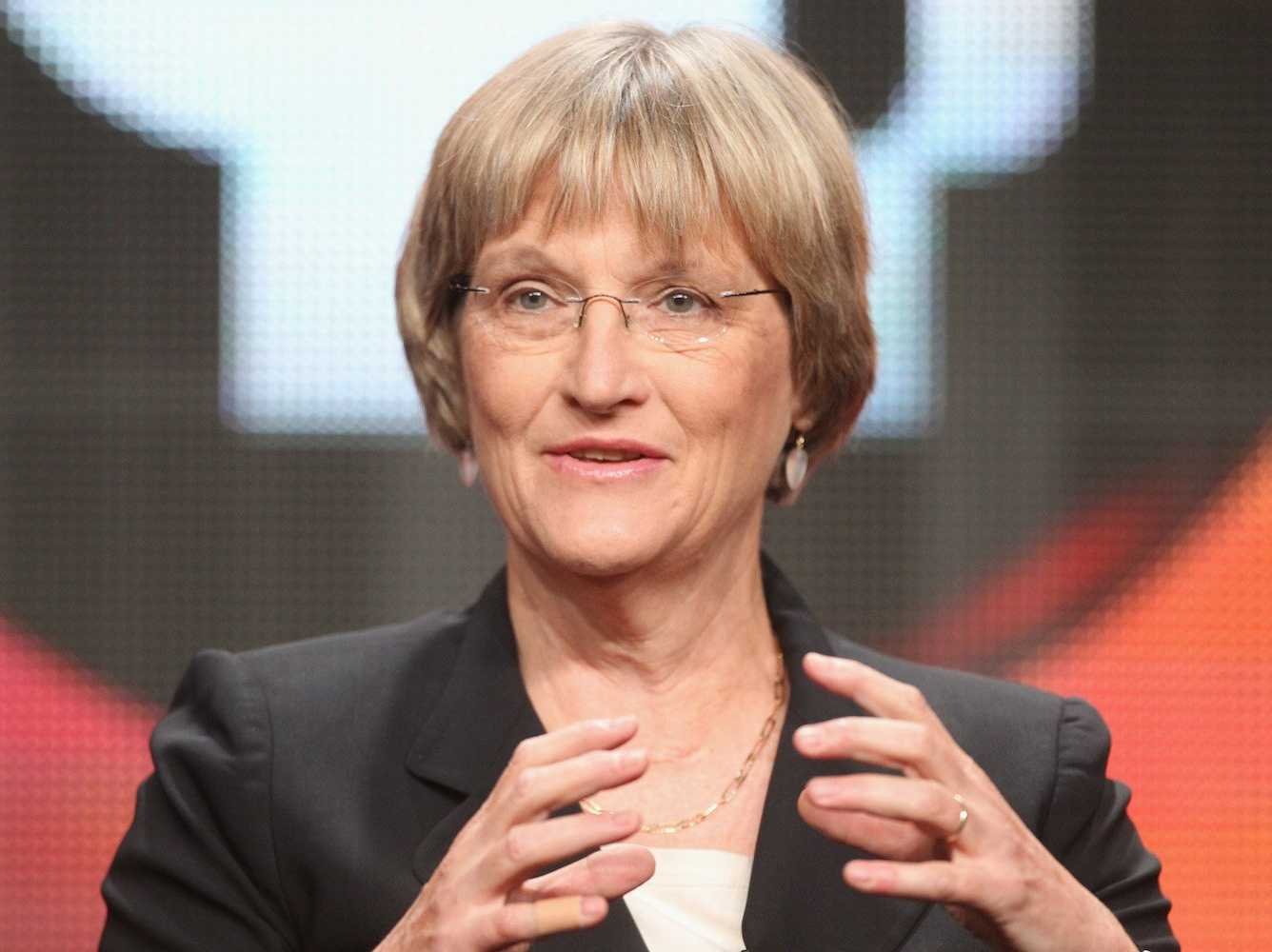 Drew Faust. Frederick M. Brown/Getty Images
Drew Faust. Frederick M. Brown/Getty Images
“Nearly half of the deans of Harvard’s schools are immigrants -- from India, China, Northern Ireland, Jamaica and Iran. Benefiting from the talents and energy, the knowledge and ideas of people from nations around the globe is not just a vital interest of the university; it long has been, and it fully remains, a vital interest of our nation ...
"In these times of change, I hope and trust that all of us committed to the strength of American higher education can pursue these efforts together. Let us do so -- to borrow the words of the poet Seamus Heaney, one of Harvard’s most beloved visitors from other shores -- with our gates unbarred.”
Esther D. Brimmer, executive director and CEO of NAFSA: Association of International Educators
“To the students, scholars, doctors, refugees, family members and others who wonder if the United States has lost its commitment to its core values as a nation of freedom, opportunity and welcome, let me unequivocally state that American citizens will not tolerate policies such as these that undermine our values and endanger our safety. We understand that America is part of the global community, and we will raise our voices with Congress, with the White House, with the media and in our communities to continue to adhere to the principles that have always made us strongest.”
John Fallon, CEO of Pearson
"One of the virtues of America’s great colleges and universities is that they attract students from around the world, regardless of nationality or religion. Pearson has never taken partisan political positions, and we respect the rights of governments around the world to determine their own laws, but for all of us who care about the American education system, the implications of this particular policy are deeply worrying."
Wim Wiewel, president of Portland State University
"We are dismayed about the impact of the executive order signed by the president denying entrance to the United States from seven predominantly Muslim nations. Portland State currently educates more than 1,900 international students, including 76 from Iran, Iraq, Libya, Yemen and Syria that are part of the ban. Most of them are graduate students. The order has a chilling effect not only on these students but on our Muslim students and all international students."
Mitch Daniels, president of Purdue University and former Republican governor of Indiana
"The president's order related to immigration is a bad idea, poorly implemented, and I hope that he will promptly revoke and rethink it. If the idea is to strengthen the protection of Americans against terrorism, there are many far better ways to achieve it."
Society of Biblical Literature
"The ban encourages discrimination and promotes misleading and sometimes dangerous caricatures of religious people, practices and texts. It also places obstacles to the travel of Muslim scholars in and out of the United States, and threatens the free exchange of ideas among the society and partnering and affiliating organizations that advance learning and help make peace and understanding possible. Thus, the society strongly opposes the ban and its implementation."
H. Carl McCall, board chairman, and Nancy L. Zimpher, chancellor of the State University of New York
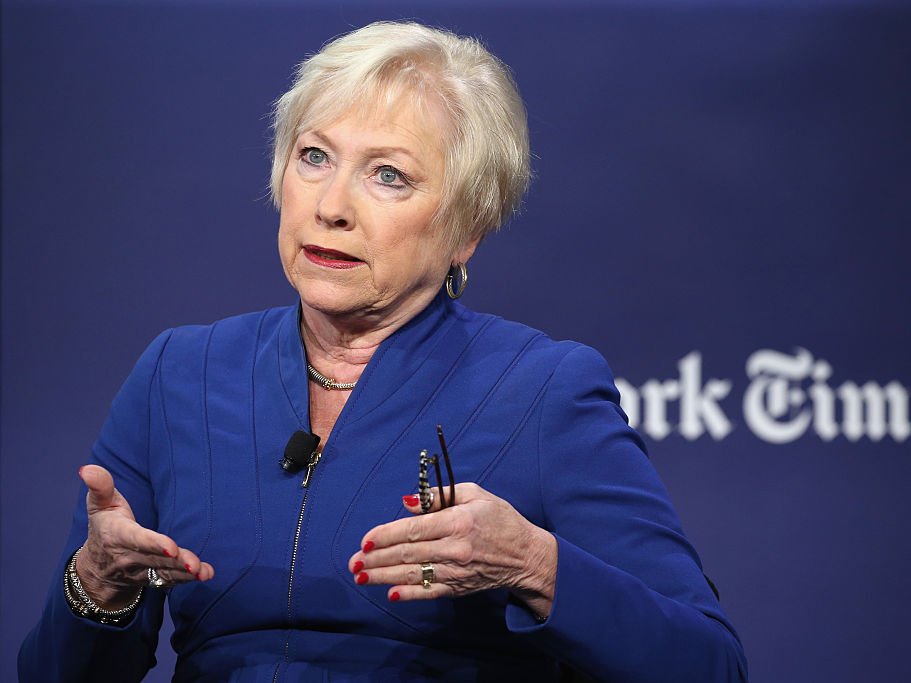 State University of New York Chancellor Nancy L. Zimpher. Neilson Barnard/Getty Images
State University of New York Chancellor Nancy L. Zimpher. Neilson Barnard/Getty Images
"The State University of New York enrolls approximately 22,140 international students from 180 countries, including 320 students from the seven countries affected by the current ban on travel. SUNY is reviewing President Trump's executive order and surveying its campuses to determine the impact it may have on our students, faculty and staff both abroad and at home on our 64 college and university campuses.
"As always, our commitments to diversity, equity and inclusion are unwavering. Our founding principles and support for undocumented students, restated by the SUNY Board of Trustees at its meeting last week, continue to guide our actions as we review and react to new federal mandates with regard to immigration."
President Janet Napolitano and the chancellors of the University of California
"We are deeply concerned by the recent executive order that restricts the ability of our students, faculty, staff and other members of the UC community from certain countries from being able to enter or return to the United States.
"While maintaining the security of the nation's visa system is critical, this executive order is contrary to the values we hold dear as leaders of the University of California. The UC community, like universities across the country, has long been deeply enriched by students, faculty and scholars from around the world, including the affected countries, coming to study, teach and research. It is critical that the United States continues to welcome the best students, scholars, scientists and engineers of all backgrounds and nationalities."
Universities Canada
"Universities Canada does not typically comment on executive action being taken by another country, but we do so today because of the real impediment this new executive order poses to the free flow of people and ideas and to the values of diversity, inclusion and openness that are hallmarks of a strong and healthy society."
Bernadette Gray-Little, chancellor of the University of Kansas
"This state and nation were settled by immigrants, and immigrants continue to make immeasurable contributions to our society. Moreover, I want to reiterate that accessibility, diversity of thought and the free and open exchange of ideas remain core values of the University of Kansas. That will never change, and we will continue our work to advance these values. And we will continue to let scholars around the world know this: no matter your country of origin, the color of your skin, your religious beliefs, gender, sexual orientation or political leaning -- you belong at the University of Kansas, and we value the contributions you make to our community."
Peyton R. Helm, interim chancellor, and Mohammad Karim, provost of the University of Massachusetts at Dartmouth
"As many members of the UMass Dartmouth community may already know, two members of our faculty were detained by U.S. Customs and Border Control officers at Logan airport yesterday afternoon (Saturday, Jan. 28) upon their return from an academic conference in Paris. This was a direct result of President Trump’s executive order, signed on Friday, restricting entry to the U.S. by citizens of seven foreign countries. Both professors are legal permanent residents of the United States with green cards …
"Now that our colleagues are safe, we want to be clear that we believe the executive order does nothing to make our country safer and represents a shameful ignorance of and indifference to the values that have traditionally made America a beacon of liberty and hope. This executive order is, furthermore, shockingly oblivious to the fundamental tenets of intellectual and academic freedom, which are enriched -- not endangered -- by international collaboration."
Freeman Hrabowski, president, and Philip Rous, provost of the University of Maryland, Baltimore County
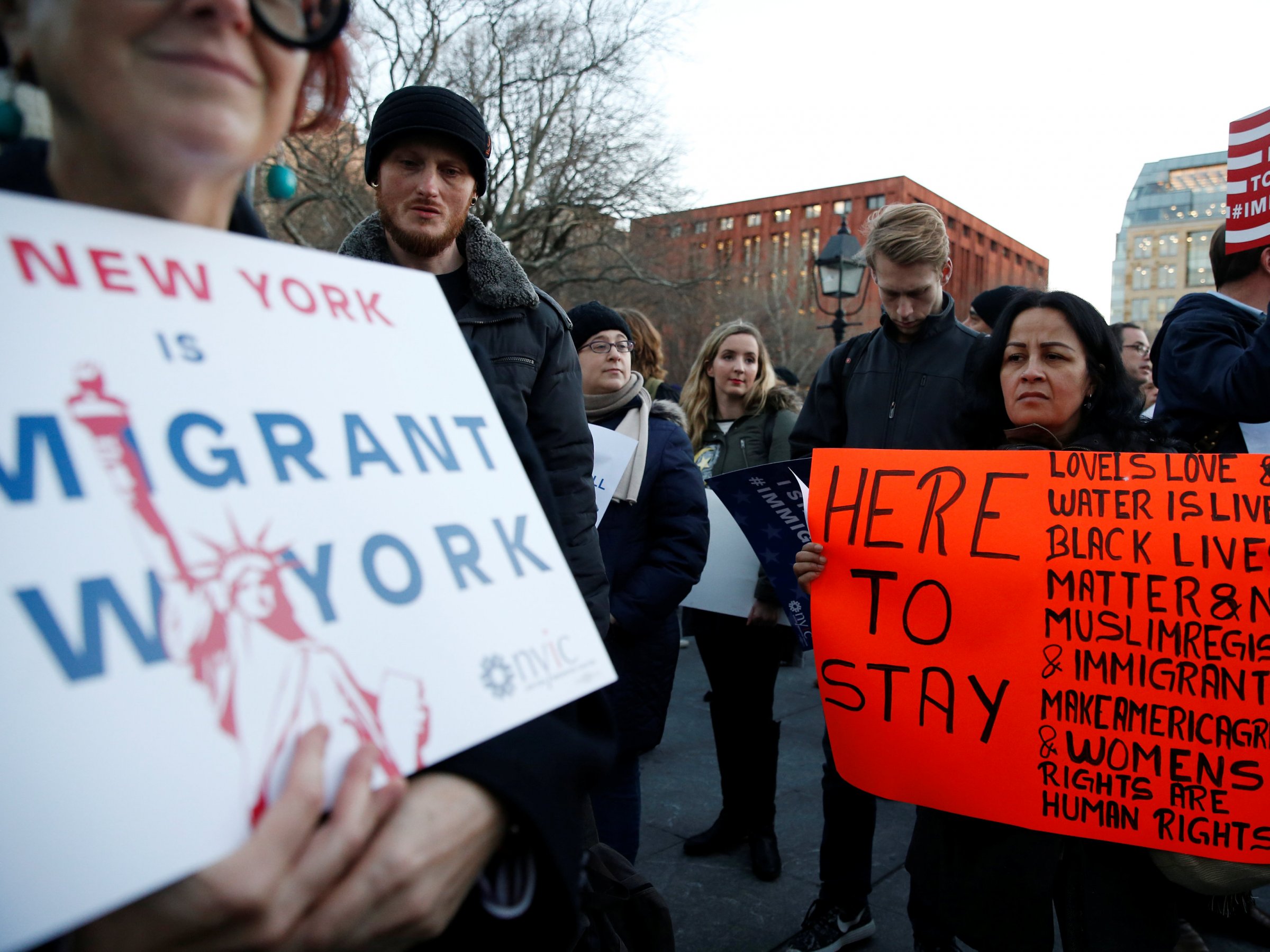 Demonstrators gather at Washington Square Park to protest against U.S. President Donald Trump in New York U.S., January 25, 2017. REUTERS/Shannon Stapleton
Demonstrators gather at Washington Square Park to protest against U.S. President Donald Trump in New York U.S., January 25, 2017. REUTERS/Shannon Stapleton
"While this recent executive order particularly impacts community members from a select set of countries, we are deeply concerned that it will have a chilling effect on higher education and research broadly. It challenges UMBC’s culture of inclusive excellence, and we will work closely with campus shared governance groups to advocate for our central values in the weeks and months ahead."
The Reverend John I. Jenkins, president of the University of Notre Dame
“The sweeping, indiscriminate and abrupt character of President Trump’s recent executive order halts the work of valued students and colleagues who have already passed a rigorous, post-9/11 review process, are vouched for by the university and have contributed so much to our campuses. If it stands, it will over time diminish the scope and strength of the educational and research efforts of American universities, which have been the source not only of intellectual discovery but of economic innovation for the United States and international understanding for our world; and, above all, it will demean our nation, whose true greatness has been its guiding ideals of fairness, welcome to immigrants, compassion for refugees, respect for religious faith and the courageous refusal to compromise its principles in the face of threats.
“We respectfully urge the president to rescind this order.”
Teresa Sullivan, president, and Tom Katsouleas, executive vice president and provost of the University of Virginia
"Beyond our concern for individual students, faculty and staff at UVA who are affected by the executive order, we are concerned about the larger effect this and related actions may have on American universities, including UVA, as we seek to expose students to international experiences. Being a great university in the 21st century means being a global university, and our entire university community is enriched and enlightened by interacting with teachers and students from other nations."
Michael Roth, president of Wesleyan University
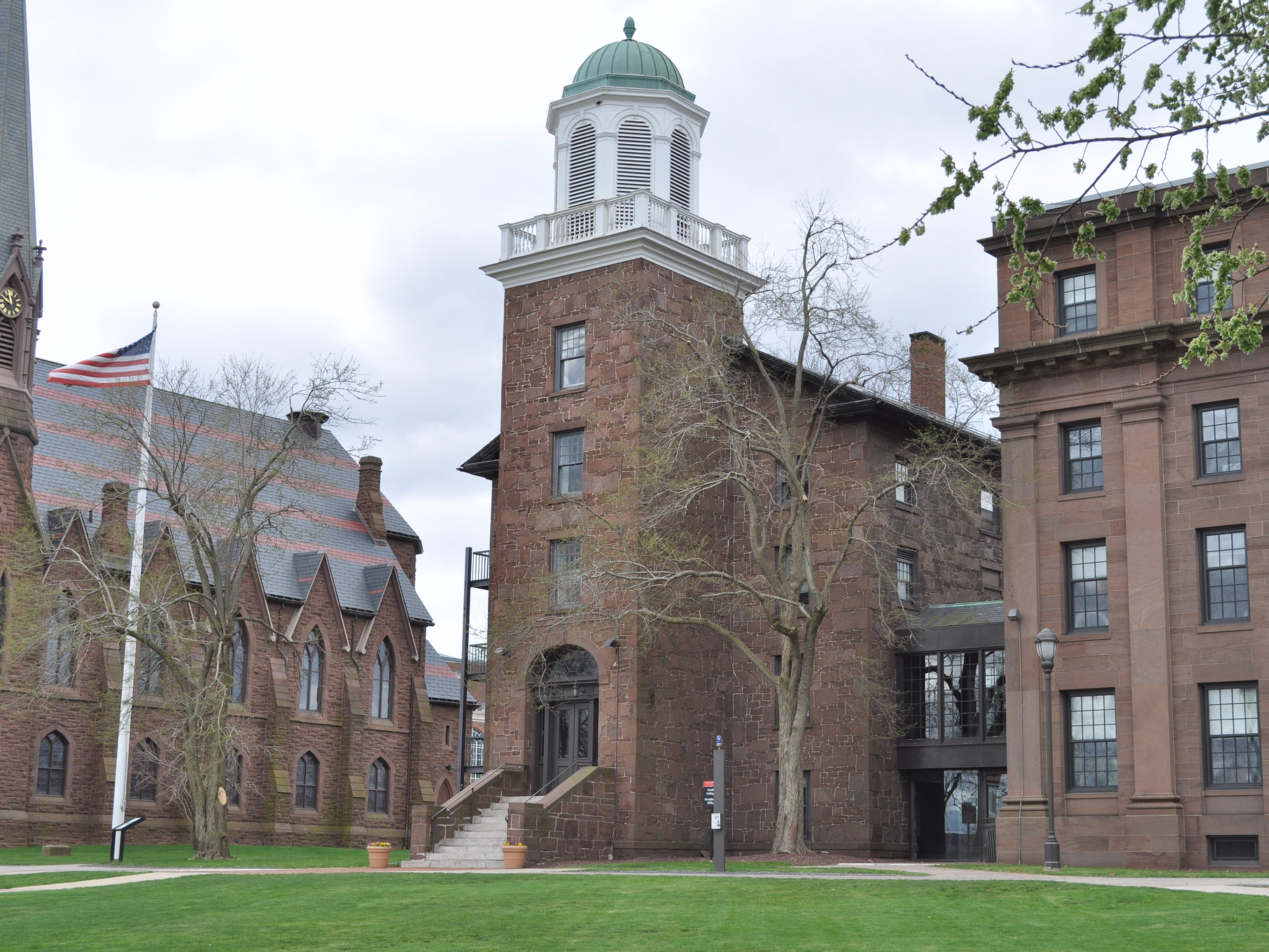 Wesleyan University. Joe Mabel/Flickr
Wesleyan University. Joe Mabel/Flickr
"Since our very beginnings, our country has been immeasurably strengthened by immigrants. Turning our backs on those in need today is worse than heartless. Since the passage of the Immigration and Nationality Act of 1965, discrimination on the basis of national origin has been illegal. The idea of a religious test for immigrants from some parts of the world is reprehensible, and we believe it to be unconstitutional. These are matters that will be resolved in the courts. Meanwhile, Wesleyan University will remain steadfast in our commitment to treat immigrants and refugees with the dignity and respect they deserve. This is what we mean when we say we are a sanctuary campus.
"Wesleyan is an institution of open-minded inquiry and education, and as such we refuse bigotry and demagoguery. As I’ve written before, 'being horrified is not enough.' We must take our revulsion against the politics of fear and scapegoating and turn it into efforts to create inclusive communities that celebrate diversity while building compassionate solidarity."
Adam Falk, president of Williams College
"The president’s order is inconsistent with Williams’ essential values. It conflicts with our nondiscrimination policy, which forbids discrimination on the basis of national origin, religion and other identity attributes. On Saturday night a federal judge issued a stay on deportations under the order, and a number of organizations and individuals have announced plans to challenge the order’s constitutionality in the courts.
"This is a distressing time, but Williams prepares us for moments when moral courage is required. We can -- and must -- show the world we’re capable of something greater and nobler than fear."
Read the original article on Inside Higher Ed. Copyright 2017. Follow Inside Higher Ed on Twitter.

